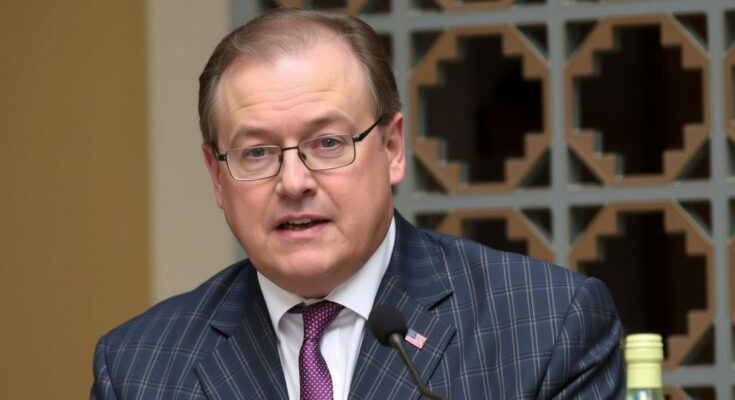Following Mikheil Kavelashvili’s election by parliament as Georgia’s new president, the outgoing president Salome Zourabichvili has labeled the process “illegitimate” and refuses to step down, sparking ongoing protests. The elections were conducted by an electoral college due to constitutional reforms, altering how leaders are selected in Georgia. Zourabichvili insists on a new election, amidst accusations of electoral fraud and growing tensions with the European Union.
On December 14th, Mikheil Kavelashvili, a former footballer and member of the ruling Georgian Dream party, was elected as Georgia’s new president by members of parliament. However, the outgoing president, Salome Zourabichvili, refuses to vacate her position, labeling Kavelashvili’s election as “illegitimate” amidst escalating anti-government protests. This election, the first conducted by an electoral college of MPs rather than through direct voter engagement, stems from 2017 constitutional reforms that shifted Georgia’s political system towards a more symbolic presidential role, significantly reducing the presidency’s power.
The political turmoil in Georgia has been exacerbated by recent constitutional changes that altered the method by which the president is elected. Previously elected through direct public vote, the head of state is now chosen by an electoral college composed of parliament members. Additionally, the current administration’s relations with the European Union have soured, particularly after the government declared a suspension of its EU accession efforts. This decision was framed as a response to EU criticisms regarding domestic policies perceived as discriminatory, especially concerning LGBT rights, leading to significant public unrest.
The refusal of President Salome Zourabichvili to relinquish her office following Mikheil Kavelashvili’s parliament election represents a significant political crisis in Georgia. The ongoing protests underscore deep public dissatisfaction with the current regime and raise serious questions about electoral legitimacy. As political instability persists, the situation calls for ensuring transparency and accountability within the electoral process to restore public trust in the governing institutions.
Original Source: europeanconservative.com




